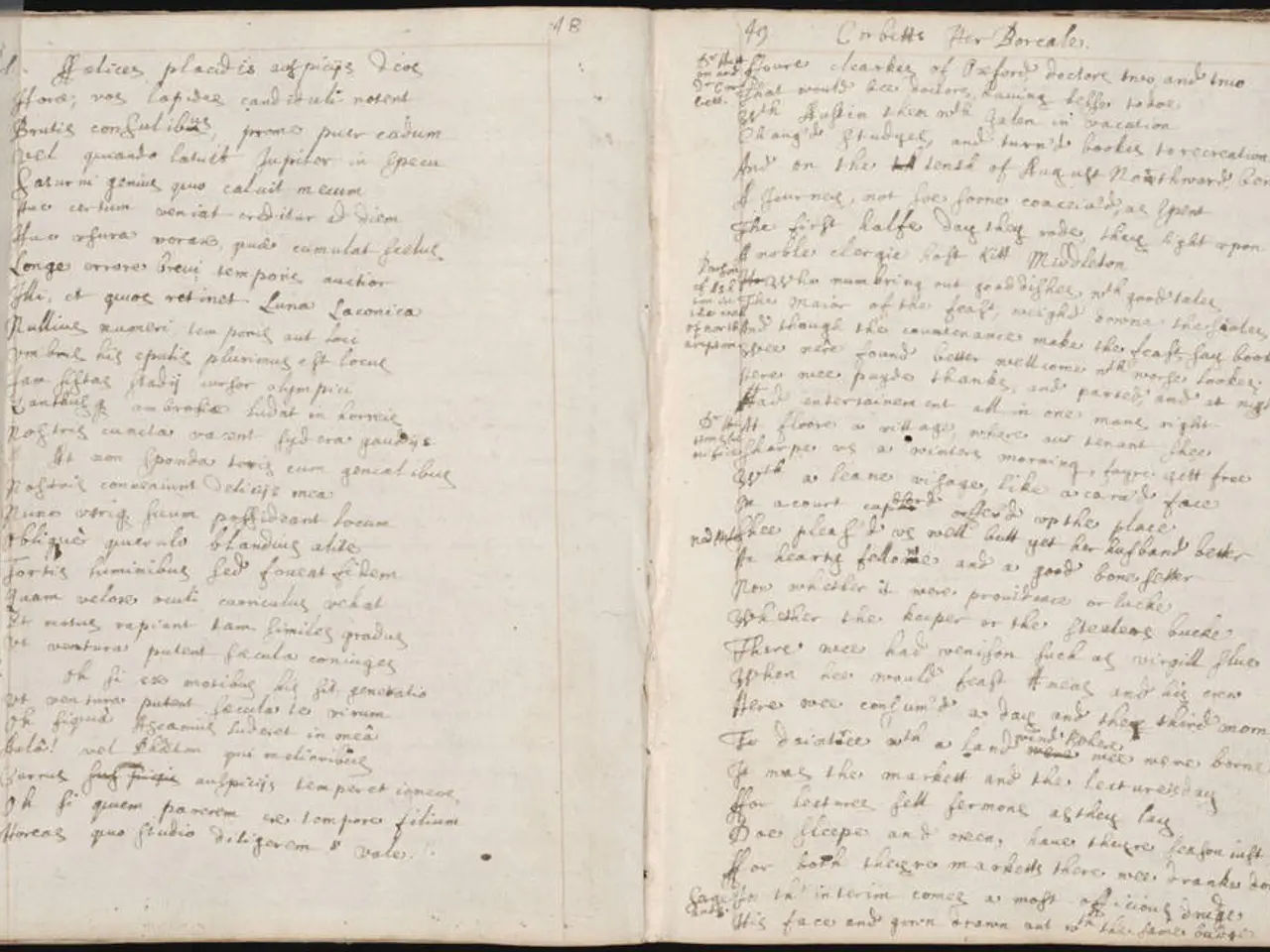Unearthed Mystery: Agatha Christie's Previously Unseen Story is Brought to Life by AI Technology
The use of artificial intelligence (AI) in the creative industry is a topic that has sparked much debate, and the BBC's recent project to complete an unfinished Agatha Christie manuscript is a prime example of this. The project, which resulted in the creation of 'Murder in the Glass House', has raised questions about creative integrity, technological capability, and ethical boundaries in the realm of fiction.
Creative Integrity
The AI's ability to replicate the distinctive literary style of Agatha Christie has been impressive, but questions remain about the erosion of human trust and connection in storytelling. Critics argue that AI-generated content often lacks the depth and originality inherent in human creativity, leading to concerns about the emotional and cultural value traditionally associated with novels and storytelling.
Technological Capability
Advances in generative AI have enabled the resurrection of lost works or the continuation of a deceased author’s style. The BBC's project serves as a testament to this, bridging gaps in literary history and offering a new kind of engagement with beloved cultural figures. However, the use of AI also depends heavily on large datasets, which often include copyrighted materials, leading to debates about the legality and transparency of AI training data.
Ethical Boundaries
The deployment of AI in literature exposes significant ethical challenges. Using AI to generate works based on an author’s style or unfinished manuscripts raises questions about consent, copyright, and the potential commodification of an author’s legacy without clear rights or attribution. There is also a broader risk of AI replacing human roles in publishing and creative industries, a concern that many authors and professionals share.
To address these issues, experts such as Laura Chen from Stanford's Center for AI & Society have suggested three safeguards for AI-authored fiction: transparency, editorial certification, and estate oversight. These safeguards could form the foundation for an "AI-authored fiction era."
In conclusion, the BBC’s AI project to revive Agatha Christie’s lost tale epitomizes the promise and perils of AI in fiction. It demonstrates remarkable technological innovation that can enrich cultural heritage but simultaneously challenges the creative integrity of literary art and forces a re-examination of ethical boundaries in authorship and copyright. As AI continues to evolve, careful regulation, transparent practices, and preservation of human-centric creativity will be crucial to harness its benefits while safeguarding the authenticity and rights of creators.
Sources: [1] BBC News (2023). The Agatha Christie AI mystery: How the BBC's Murder in the Glass House was written. [online] Available at: https://www.bbc.co.uk/news/entertainment-arts-57327542
[2] The Guardian (2023). Agatha Christie's lost play found and finished by AI, says BBC. [online] Available at: https://www.theguardian.com/books/2023/feb/08/agatha-christies-lost-play-found-and-finished-by-ai-says-bbc
[3] The New York Times (2023). Agatha Christie's 'Murder in the Glass House': A Play Written by AI. [online] Available at: https://www.nytimes.com/2023/02/10/arts/television/agatha-christie-ai-play.html
[4] Forbes (2023). Agatha Christie's Lost Play 'Murder in the Glass House' Completed by AI, BBC Announces. [online] Available at: https://www.forbes.com/sites/benzinga/2023/02/10/agatha-christies-lost-play-murder-in-the-glass-house-completed-by-ai-bbc-announces/
[5] Wired (2023). Agatha Christie's Lost Play Is Being Completed by AI. [online] Available at: https://www.wired.com/story/agatha-christies-lost-play-is-being-completed-by-ai/
AI's ability to contribute to the storytelling process in the realm of entertainment, as demonstrated by the AI-completed Agatha Christie book, has expanded the technological capabilities in the creative industry. However, the ethical implications of AI-generated content and the potential infringement on creative integrity, copyright, and author's rights necessitate careful consideration and regulation.




